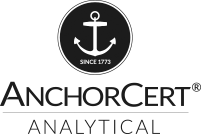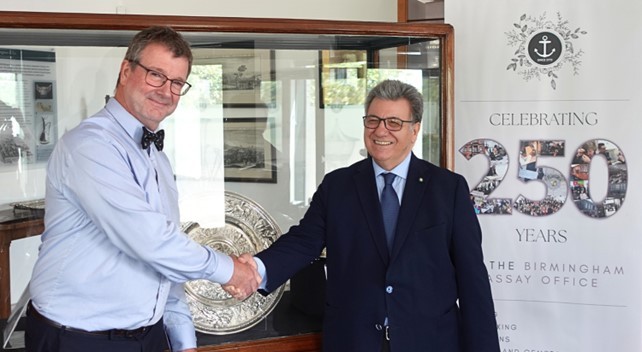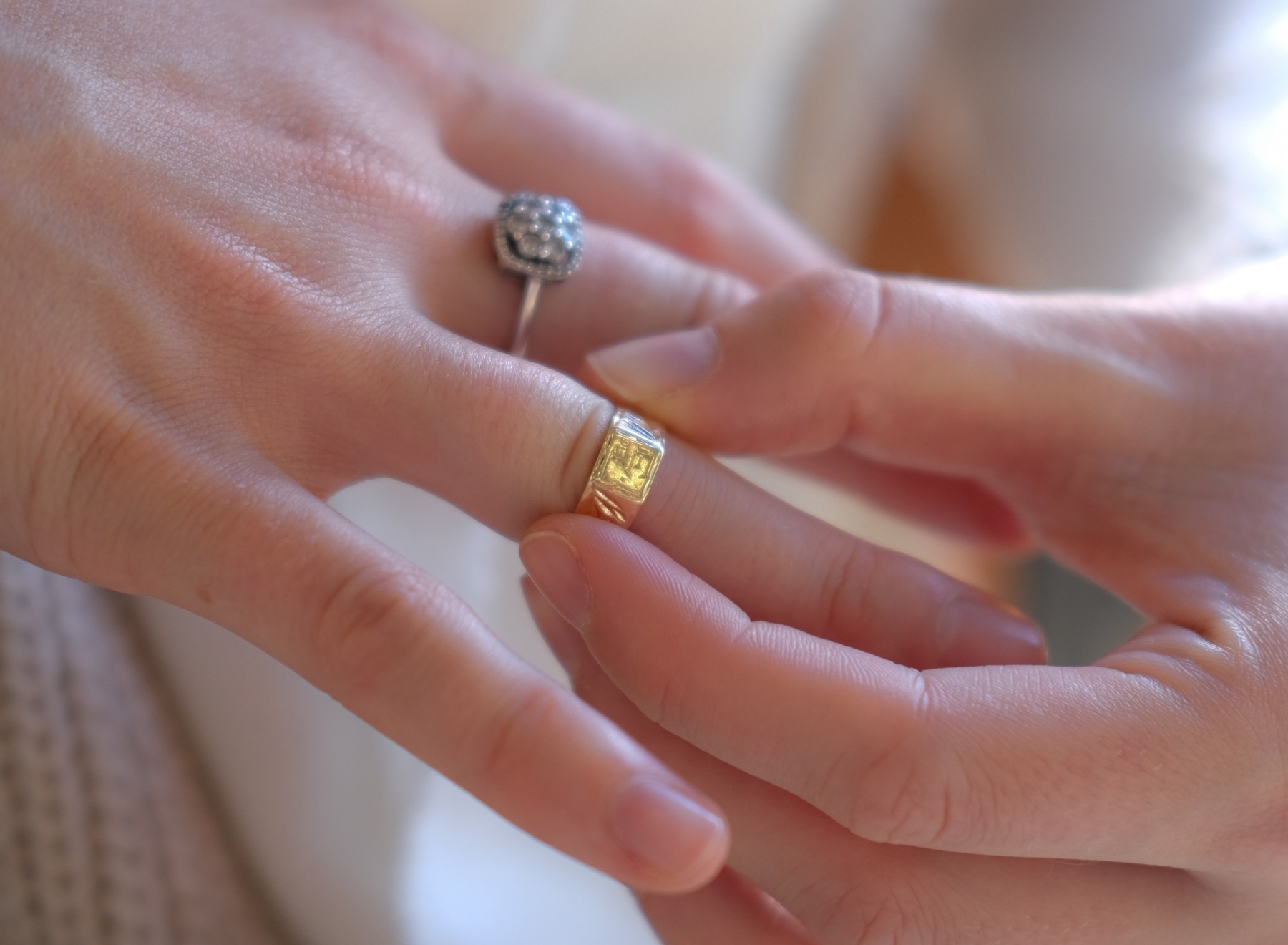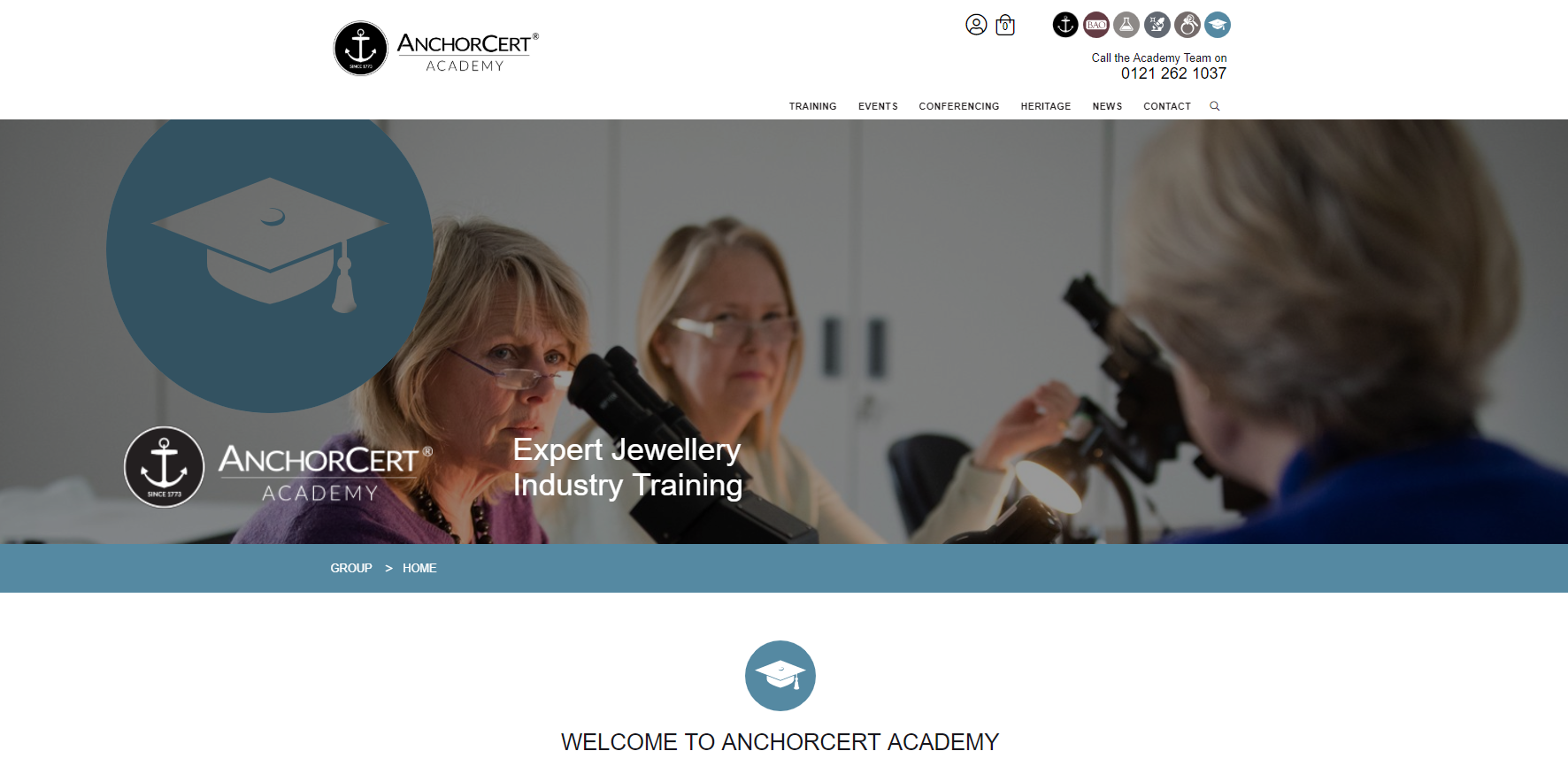 The Laboratory at The Birmingham Assay Office have announced an improved âcrystal glassâ test. This has been developed specifically for those who wish to ensure their products meet the criteria required for it to be described as âcrystal glassâ as defined by an EU Directive of 1969 (Annex I of Council Directive 69/493/EEC -1969).
This may be necessary for compliance with straightforward Trades Description requirements or it may be due to new legislation relating to lead in certain articles. The European REACH (Restriction, Evaluation, Authorisation and Restriction of Chemicals) Regulation, enforceable from October 2013, restricts the levels of lead content in all types of jewellery and hair accessories but âcrystal glassâ is exempt.
The Laboratory at The Birmingham Assay Office have announced an improved âcrystal glassâ test. This has been developed specifically for those who wish to ensure their products meet the criteria required for it to be described as âcrystal glassâ as defined by an EU Directive of 1969 (Annex I of Council Directive 69/493/EEC -1969).
This may be necessary for compliance with straightforward Trades Description requirements or it may be due to new legislation relating to lead in certain articles. The European REACH (Restriction, Evaluation, Authorisation and Restriction of Chemicals) Regulation, enforceable from October 2013, restricts the levels of lead content in all types of jewellery and hair accessories but âcrystal glassâ is exempt.
 In order to be classified as one of the categories of âcrystal glassâ the material must comply with three different criteria. It must contain oxides of Lead, Barium, Zinc or Potash combined or alone of at least 10%, have a refractive index of above 1.52 and a density above 2.45 grams per cubic centimetre. The Birmingham Assay Office has the specialist resources needed to offer this test, having the expertise and equipment to carry out both chemical and gemmological testing.
Samples are subjected to assessment by both The Laboratory, who check the level of oxides, and the AnchorCert Gemmological Laboratory, who assess the relative density and refractive index and the final outcome is reported as âCrystal â Exemptâ or âGlassâ which may then be either âCompliantâ or âNon Compliantâ, depending upon the amount of lead contained.
Technical Director Dippal Manchanda says âMany customers want to confirm that their products have the necessary chemical composition and physical qualities to be classified as âcrystal glassâ. In response to this The Laboratory at The Birmingham Assay Office has developed the test method and the software which will simultaneously analyse Lead, Cadmium, Barium, Potassium and Zinc. This will quickly identify if the glass article being tested meets the chemical criteria for it to be classified as crystal. Only if the article proves compliant with regard to its chemical composition do we take it forward for the gemmological testing. This way we can keep the cost of the test down.Â
In order to be classified as one of the categories of âcrystal glassâ the material must comply with three different criteria. It must contain oxides of Lead, Barium, Zinc or Potash combined or alone of at least 10%, have a refractive index of above 1.52 and a density above 2.45 grams per cubic centimetre. The Birmingham Assay Office has the specialist resources needed to offer this test, having the expertise and equipment to carry out both chemical and gemmological testing.
Samples are subjected to assessment by both The Laboratory, who check the level of oxides, and the AnchorCert Gemmological Laboratory, who assess the relative density and refractive index and the final outcome is reported as âCrystal â Exemptâ or âGlassâ which may then be either âCompliantâ or âNon Compliantâ, depending upon the amount of lead contained.
Technical Director Dippal Manchanda says âMany customers want to confirm that their products have the necessary chemical composition and physical qualities to be classified as âcrystal glassâ. In response to this The Laboratory at The Birmingham Assay Office has developed the test method and the software which will simultaneously analyse Lead, Cadmium, Barium, Potassium and Zinc. This will quickly identify if the glass article being tested meets the chemical criteria for it to be classified as crystal. Only if the article proves compliant with regard to its chemical composition do we take it forward for the gemmological testing. This way we can keep the cost of the test down.Â
 âFor those who are testing jewellery items we also offer the option of testing for lead content alone to start with. If the lead content of each individual part is less than or equal to 0.05% (500 parts per million) by weight then the article complies with the Lead regulation and further testing to prove it is crystal glass, which is exempt, may not be required. Again we are working with our customers, offering them options to quickly and accurately prove compliance and establish reassurance at the lowest possible cost. Due to the mix of expertise required The Birmingham Assay Office is in a unique position to offer this test and we have had an excellent initial response.âÂ
âFor those who are testing jewellery items we also offer the option of testing for lead content alone to start with. If the lead content of each individual part is less than or equal to 0.05% (500 parts per million) by weight then the article complies with the Lead regulation and further testing to prove it is crystal glass, which is exempt, may not be required. Again we are working with our customers, offering them options to quickly and accurately prove compliance and establish reassurance at the lowest possible cost. Due to the mix of expertise required The Birmingham Assay Office is in a unique position to offer this test and we have had an excellent initial response.âÂ

 The Laboratory at The Birmingham Assay Office have announced an improved âcrystal glassâ test. This has been developed specifically for those who wish to ensure their products meet the criteria required for it to be described as âcrystal glassâ as defined by an EU Directive of 1969 (Annex I of Council Directive 69/493/EEC -1969).
This may be necessary for compliance with straightforward Trades Description requirements or it may be due to new legislation relating to lead in certain articles. The European REACH (Restriction, Evaluation, Authorisation and Restriction of Chemicals) Regulation, enforceable from October 2013, restricts the levels of lead content in all types of jewellery and hair accessories but âcrystal glassâ is exempt.
The Laboratory at The Birmingham Assay Office have announced an improved âcrystal glassâ test. This has been developed specifically for those who wish to ensure their products meet the criteria required for it to be described as âcrystal glassâ as defined by an EU Directive of 1969 (Annex I of Council Directive 69/493/EEC -1969).
This may be necessary for compliance with straightforward Trades Description requirements or it may be due to new legislation relating to lead in certain articles. The European REACH (Restriction, Evaluation, Authorisation and Restriction of Chemicals) Regulation, enforceable from October 2013, restricts the levels of lead content in all types of jewellery and hair accessories but âcrystal glassâ is exempt.
 In order to be classified as one of the categories of âcrystal glassâ the material must comply with three different criteria. It must contain oxides of Lead, Barium, Zinc or Potash combined or alone of at least 10%, have a refractive index of above 1.52 and a density above 2.45 grams per cubic centimetre. The Birmingham Assay Office has the specialist resources needed to offer this test, having the expertise and equipment to carry out both chemical and gemmological testing.
Samples are subjected to assessment by both The Laboratory, who check the level of oxides, and the AnchorCert Gemmological Laboratory, who assess the relative density and refractive index and the final outcome is reported as âCrystal â Exemptâ or âGlassâ which may then be either âCompliantâ or âNon Compliantâ, depending upon the amount of lead contained.
Technical Director Dippal Manchanda says âMany customers want to confirm that their products have the necessary chemical composition and physical qualities to be classified as âcrystal glassâ. In response to this The Laboratory at The Birmingham Assay Office has developed the test method and the software which will simultaneously analyse Lead, Cadmium, Barium, Potassium and Zinc. This will quickly identify if the glass article being tested meets the chemical criteria for it to be classified as crystal. Only if the article proves compliant with regard to its chemical composition do we take it forward for the gemmological testing. This way we can keep the cost of the test down.Â
In order to be classified as one of the categories of âcrystal glassâ the material must comply with three different criteria. It must contain oxides of Lead, Barium, Zinc or Potash combined or alone of at least 10%, have a refractive index of above 1.52 and a density above 2.45 grams per cubic centimetre. The Birmingham Assay Office has the specialist resources needed to offer this test, having the expertise and equipment to carry out both chemical and gemmological testing.
Samples are subjected to assessment by both The Laboratory, who check the level of oxides, and the AnchorCert Gemmological Laboratory, who assess the relative density and refractive index and the final outcome is reported as âCrystal â Exemptâ or âGlassâ which may then be either âCompliantâ or âNon Compliantâ, depending upon the amount of lead contained.
Technical Director Dippal Manchanda says âMany customers want to confirm that their products have the necessary chemical composition and physical qualities to be classified as âcrystal glassâ. In response to this The Laboratory at The Birmingham Assay Office has developed the test method and the software which will simultaneously analyse Lead, Cadmium, Barium, Potassium and Zinc. This will quickly identify if the glass article being tested meets the chemical criteria for it to be classified as crystal. Only if the article proves compliant with regard to its chemical composition do we take it forward for the gemmological testing. This way we can keep the cost of the test down.Â
 âFor those who are testing jewellery items we also offer the option of testing for lead content alone to start with. If the lead content of each individual part is less than or equal to 0.05% (500 parts per million) by weight then the article complies with the Lead regulation and further testing to prove it is crystal glass, which is exempt, may not be required. Again we are working with our customers, offering them options to quickly and accurately prove compliance and establish reassurance at the lowest possible cost. Due to the mix of expertise required The Birmingham Assay Office is in a unique position to offer this test and we have had an excellent initial response.âÂ
âFor those who are testing jewellery items we also offer the option of testing for lead content alone to start with. If the lead content of each individual part is less than or equal to 0.05% (500 parts per million) by weight then the article complies with the Lead regulation and further testing to prove it is crystal glass, which is exempt, may not be required. Again we are working with our customers, offering them options to quickly and accurately prove compliance and establish reassurance at the lowest possible cost. Due to the mix of expertise required The Birmingham Assay Office is in a unique position to offer this test and we have had an excellent initial response.âÂ
For more information on this UNIQUE test contact the Laboratory at The Birmingham Assay Office on 0871 871 6020 or email:Â testing@theassayoffice.co.uk

Your item has been added to the basket
You need to create an account, or login before you can add this item to your basket.







